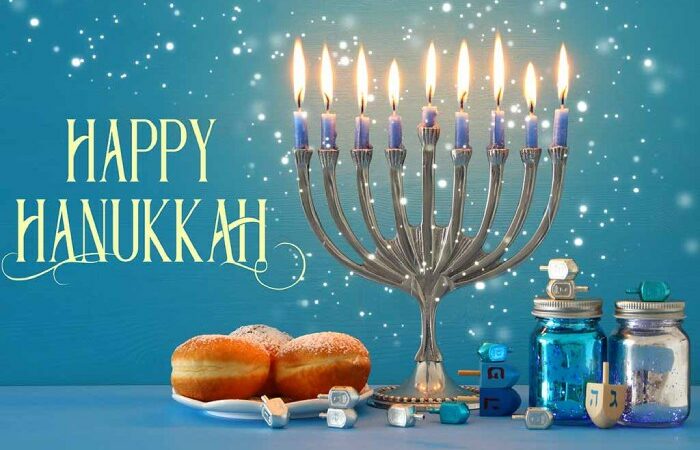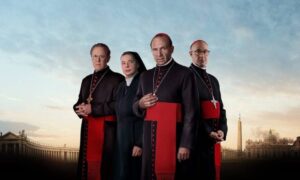After nearly two years of living in a pandemic, celebrating Hanukkah, the Festival of Lights, is a bright point for Jewish people. Covid-19 has killed over 5.1 million people globally, but increased vaccination rates have allowed for a mix of virtual and in-person events this year.
The old Hebrew calendar, not the Gregorian calendar, governs when Hanukkah is observed, which is why the dates vary from year to year. In 2021, the holiday will be observed from November 28 to December 6 at sundown. The celebration is frequently celebrated around Christmas, however the two are unrelated.
Antiochus IV, the ancient tyrant, outlawed Jewish religion and compelled Jews to worship Greek gods. The Maccabees, an army led by priest Mattahias and his son Judah Maccabee, rose up against King Antiochus IV and drove him out. The event commemorates the Jews reclaiming the temple in the 160s BC.
A light in the darkness
Lighting the menorah each of the eight nights of Hanukkah is one of the holiday’s most important traditions. Alana Rudkin of Pittsburgh said that lighting the menorah reminds her that a small amount of light can banish a lot of darkness.
“I would encourage folks to connect to their inner light, making room for self-reflection and growth,” Rudkin said.
Rudkin volunteers at The Friendship Circle of Pittsburgh, a Jewish community-based organisation dedicated to improving the lives of Pittsburgh’s adolescents and adults.
The pandemic has also impacted Rudkin’s family celebrations. Her family generally makes latkes, which are fried potato pancakes, and then invites others over to share the meal.
“My father would make us grate potatoes by hand until our fingers bled,” Rudkin recounted.
She didn’t invite guests over last year, but she still baked latkes at home with her folks.
To honour the miracle of the Maccabees’ long-burning oil, Jewish people typically cook their latkes in oil.
Online family celebrations
Lisa Gaetjens’ family organised a party for dozens of family and friends in 2019 in New York City, complete with traditional delicacies like latkes and sufganiyot, which are fried jelly doughnuts.
Last year, her family opted to move their party, which was a modest affair, online.
“It’s very disappointing to not be able to physically be with our families for this holiday, but it’s also the best option,” Gaetjens said.
Her mother-in-law arranged for food to be delivered to each of the attendees’ homes so that everyone could share the same supper.
Honoring traditions
Rabbi-in-residence Last year, Avram Mlotek of the Marlene Meyerson Jewish Community Center in New York City took part in virtual celebrations, offering a latke cooking class and online candle lightings.
Meyerson argues that because they had to do so early in the pandemic, Jews are ready to celebrate online. “When Passover was around and we had to celebrate in isolation, I reminded folks that actually the first Passover was also celebrated in a type of quarantine.”
According to Mlotek, the angel of death passed over Jewish households in the Bible, but they were safe because they marked their dwellings and stayed inside.
Mlotek is no stranger to darkness and suffering, having grown up as the grandson of Holocaust survivors. This year, he intends to reach a broader audience of present and future Jewish generations to celebrate life and Hanukkah.
- Google Doodle Celebrates King’s Day (Koningsdag) 2025 - April 26, 2025
- NCAA DIII Men’s Volleyball Championship 2025: Full Bracket, Schedule, and Scores - April 26, 2025
- NCAA DII Men’s Golf 2025: See the Complete List of Regional Selections - April 26, 2025





